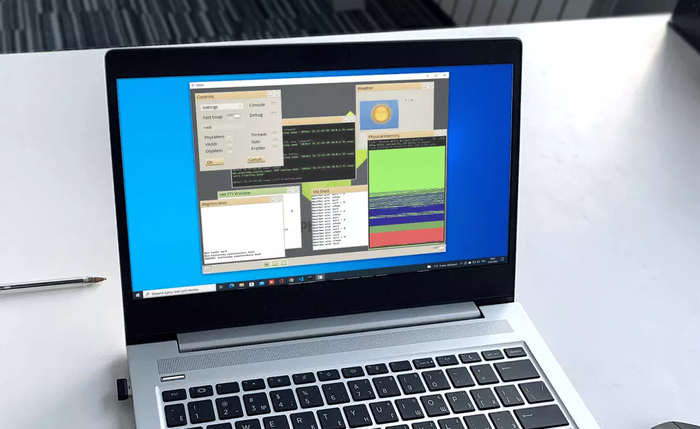
The main version of the Phantom operating system is ready for trial projects, and a full release is scheduled for the end of 2022. Dmitry Zavalishin, the main developer of the system, said this in an interview with CNews. Zavalishin has been working on the system since 2010 together with employees of the DZ Systems holding, whose first company he founded in 2005.
The “Phantom” system differs from classic Windows, Linux and macOS – it uses persistent virtual memory, managed code and global address space.
Persistent virtual memory implies the “continuity” of process execution and high reliability of data storage. Applications “do not see” reboots and shutdowns, from their point of view, the system works non-stop and constantly saves all data changes. The user does not need to take care of saving files and backups himself – even a crash will not damage them. There are no files in Phantom at all – instead of them, the system operates with objects that are directly accessible by pointers.
Managed code protects each object and prevents the programmer from manually working with memory – this immediately cuts off most of the errors and vulnerabilities that damage user data and allow viruses to spread. Classical systems protect only processes from each other, while literally anything can happen inside them.
The global address space provides maximum program execution performance. Classical systems divide memory into kernel space and user space – the core of the system (the central part that controls all resources) works in the first one, and user applications work in the second. During operation, the system has to switch between these spaces millions of times per second, which is bad for performance. “Phantom” is spared from these switches – all processes interact with each other through the direct transfer of references to objects. In a classic system, this is an extremely dangerous approach, but not in a managed code system.
The main niche of “Phantom” is embedded systems – the control of industrial equipment and household appliances, the Internet of things and other tasks where Linux now dominates. DZ Systems is working on porting the Phantom to the Genode framework, a special “strap” for microkernel operating systems that allows you to run regular Linux programs. This version should be released by the end of 2022.
In the future, Zavalishin and his colleagues plan to transfer Phantom to the seL4 microkernel in order to mathematically check the entire system and prove the absence of errors and vulnerabilities in it. This will create the basis for building extremely reliable and secure software systems.
Source:
